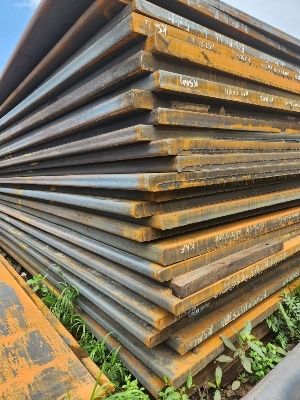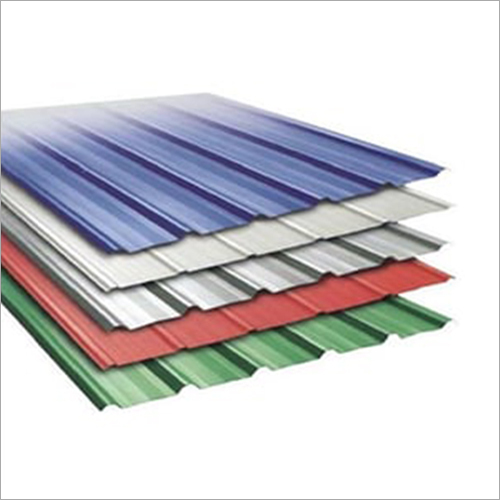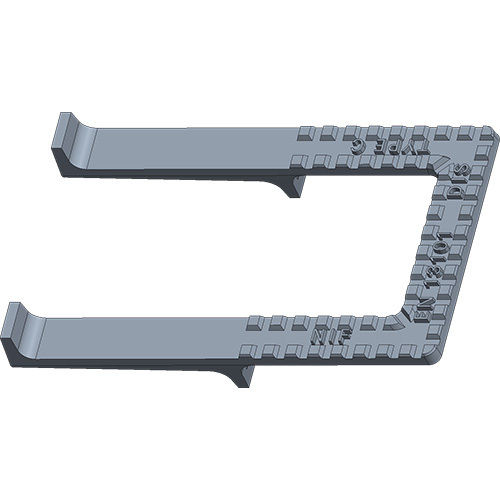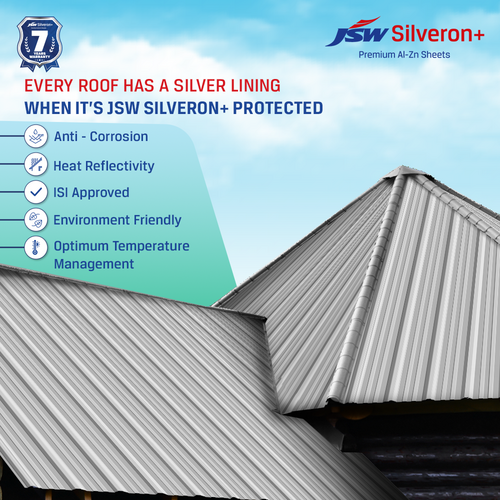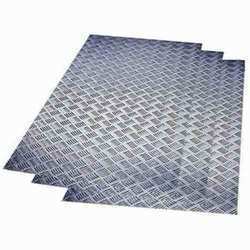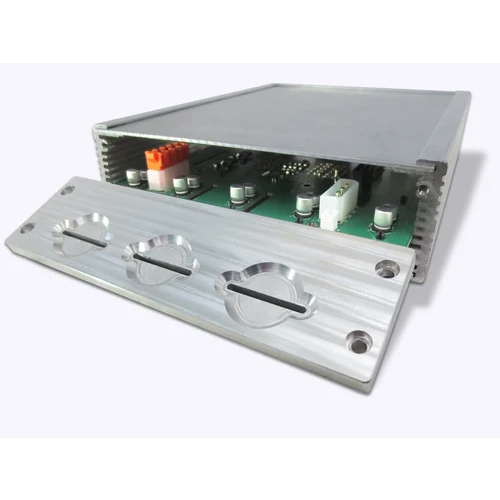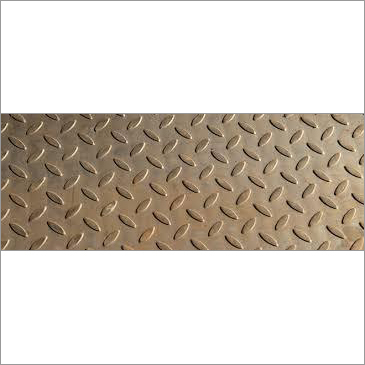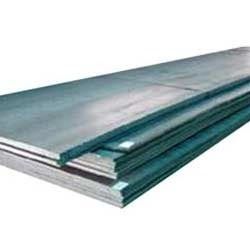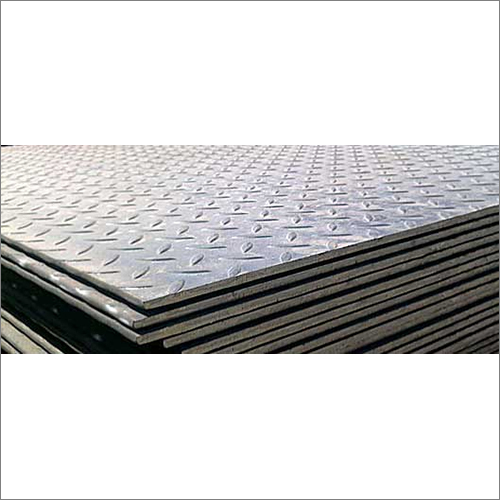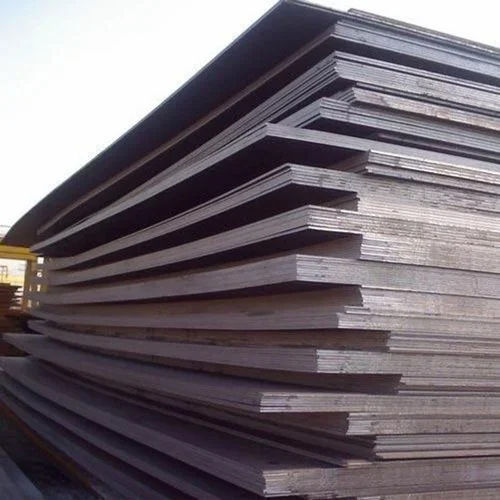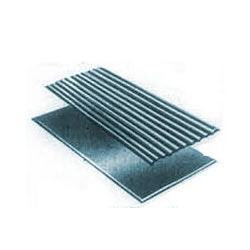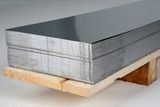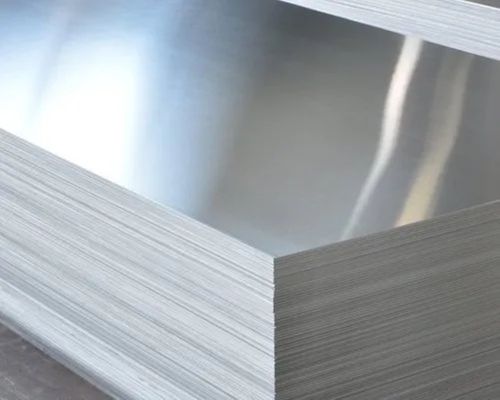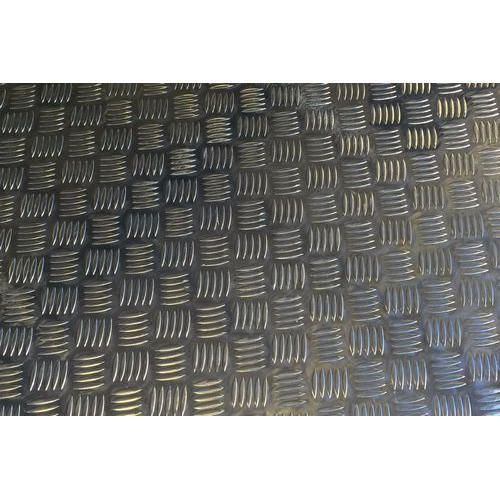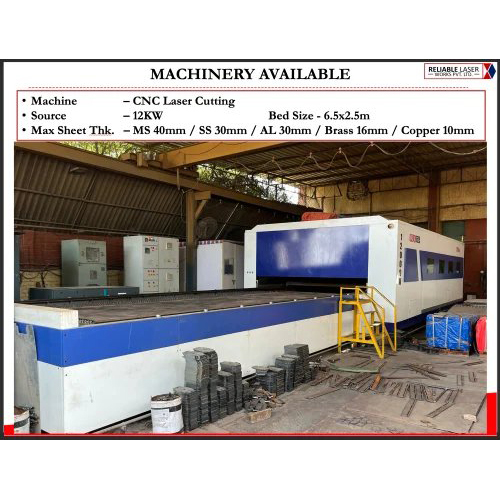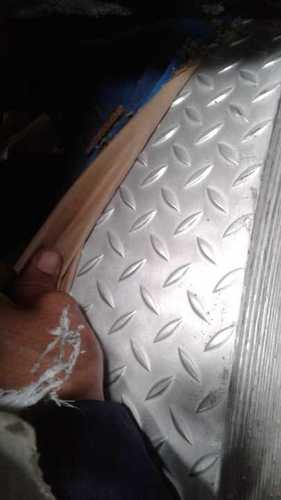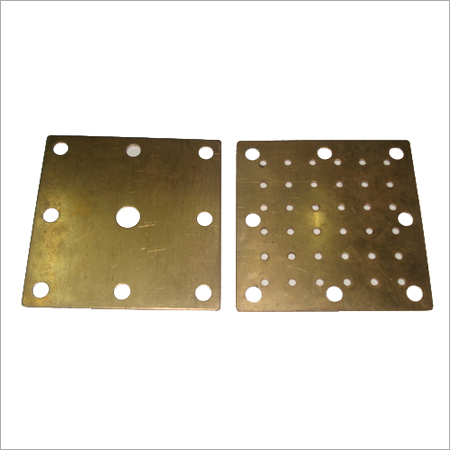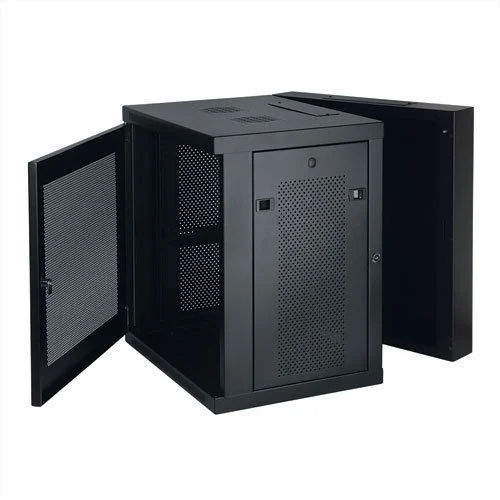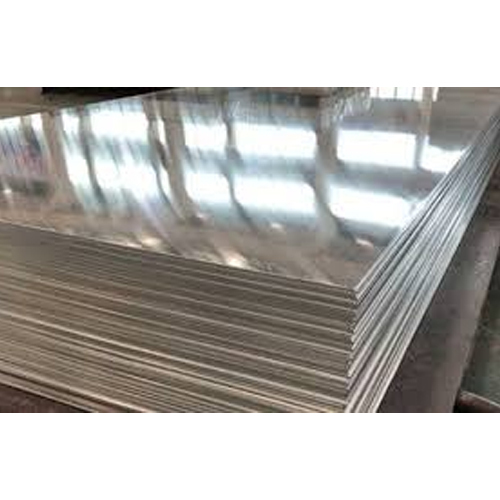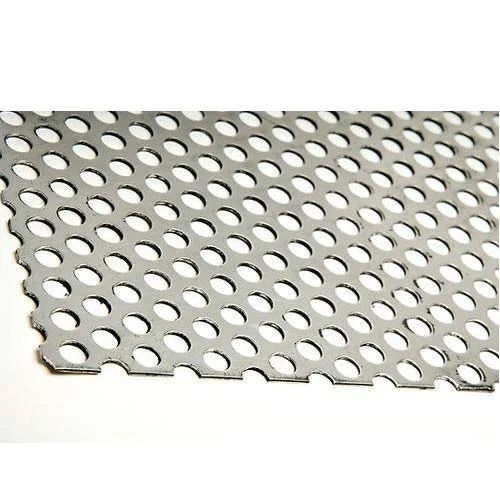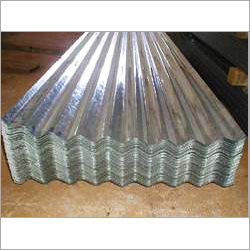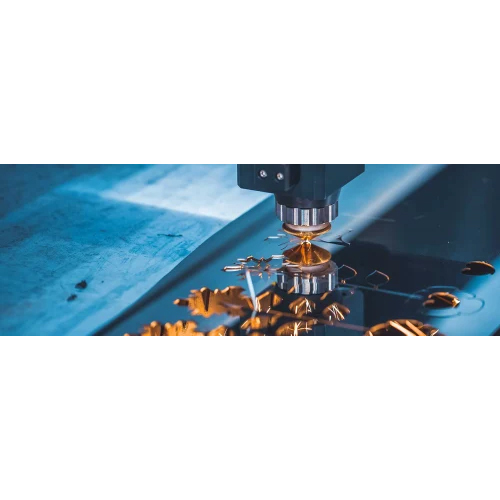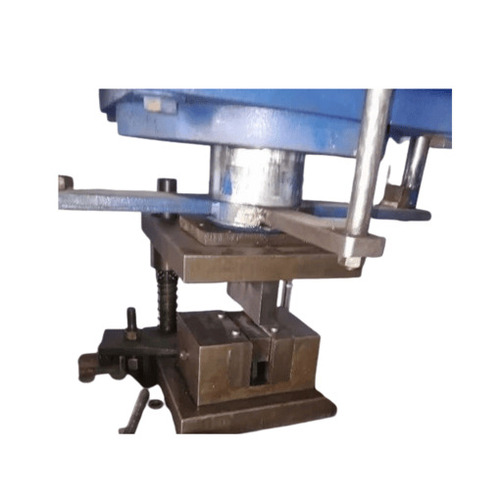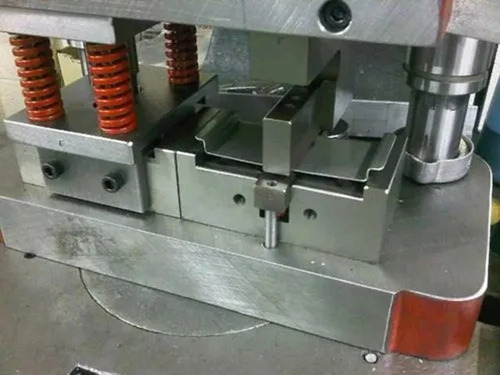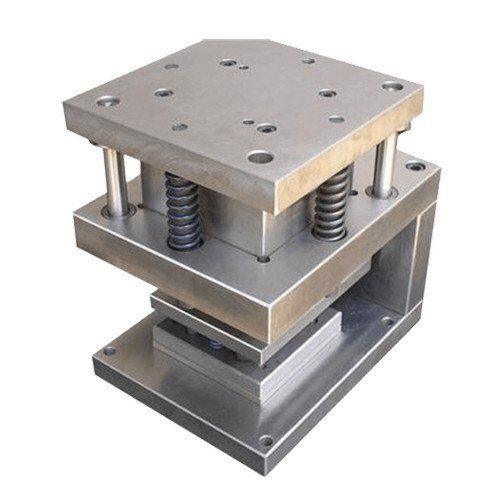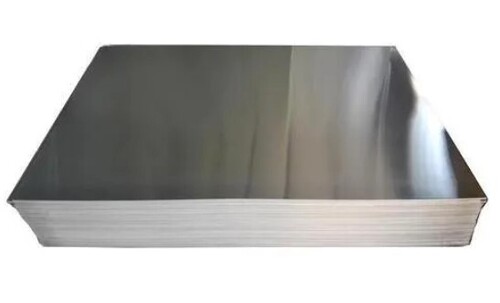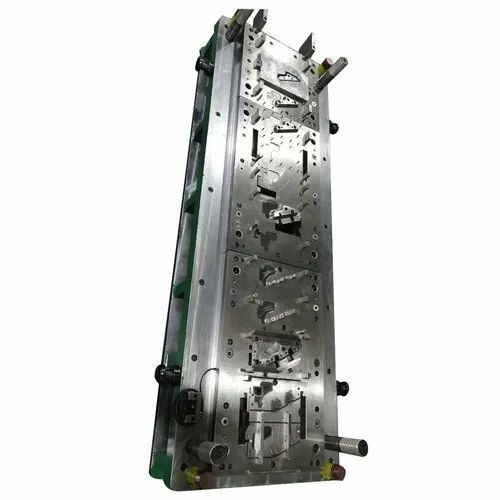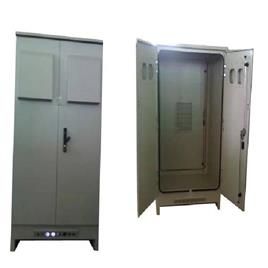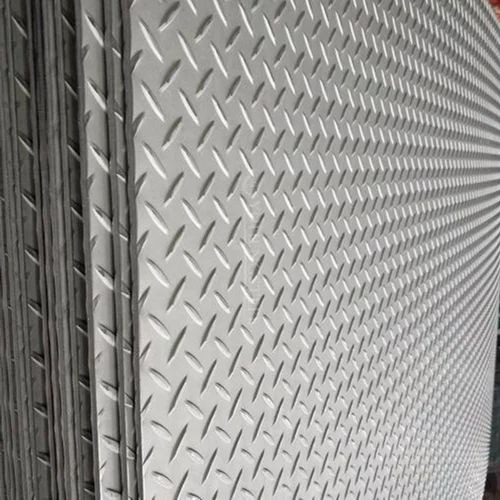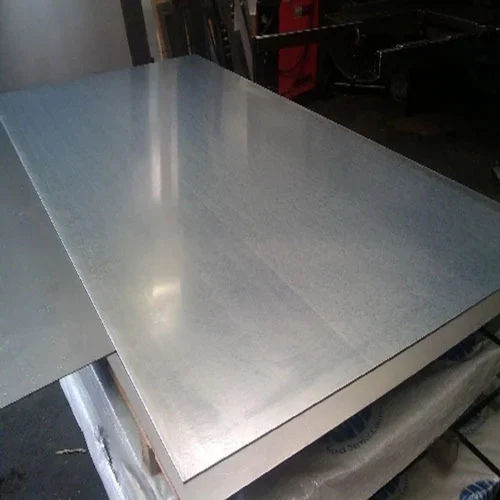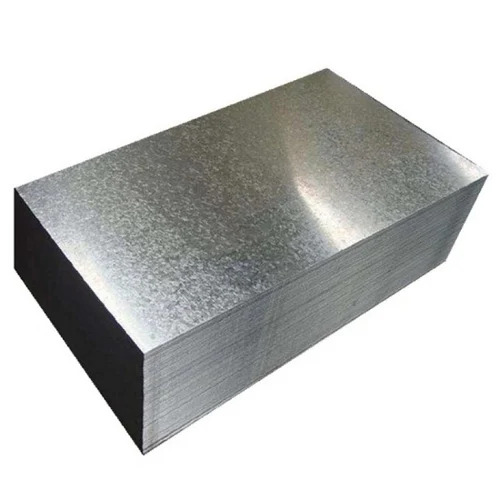Sheet Metal
(10562 products)MS Chequered Plates - 1500x6300 mm, Rust Resistant Mild Steel with Polished Surface for Durable Flooring, Stair Treads, Platforms, and Ramps
Price: 65 INR/Kilograms
MOQ1000 Kilograms/Kilograms
MaterialOther , Mild Steel
TypeOther, MS Chequered Plates
GradeIndustrial
Surface Treatmentcustomize
UseFlooring, stair treads, platforms, and ramps for safety and durability
Available In Various Color Ppgl/Gc Sheet
Price: 1200 INR/Piece
MOQ100 Piece/Pieces
ColorAvailable in Various color
TypePPGL Sheet
TransparencyNo
HardnessRigid
Thickness2 Millimeter (mm)
SizeAs per the requirement
Maa Ambey Tube Company
Howrah
 Super Seller
Super Seller3 Years
MS Sail TMT Bar
Price: 34000 INR/Ton
MOQ5 Ton/Tons
Supply Ability10000 Per Week
Delivery Time2-3 Days
Main Export Market(s)Asia
Industrial Step Iron Grade: A
MOQ1 Piece/Pieces
MaterialIron
GradeA
Surface TreatmentPowder Coating
UseIndustrial
Jsw Silveron Plus Bare Galvalume Bgl Sheets - Grade: Prime - Az70
Price: 90 INR/Kilograms
MOQ1000 Kilograms/Kilograms
MaterialAluminum, Zinc
TypeSteel Plate
GradePrime - AZ70, AZ100 and AZ150 GSM Coatings
Surface TreatmentGalvanized
Thickness0.50mm Millimeter (mm)
Width1260mm / 1060mm Millimeter (mm)
Vivek Steels Skyline Pvt. Ltd.
Indore
Mild Steel Chequered Plates - Durable Quality with Low Maintenance , Robust and Reliable Design
Payment TermsDelivery Point (DP), Days after Acceptance (DA), Cheque
Sample AvailableYes
Sample PolicyContact us for information regarding our sample policy
Shubh M L Shah Sons Steel Private Limited
Navi Mumbai
Electronic Sheet Metal Enclosures - Grade: High
Price: 100000 INR/Piece
MOQ1 Piece/Pieces
MaterialStainless steel
TypeOther, Electronic Sheet Metal Enclosures
GradeHigh
TechniqueHot Rolled
Surface TreatmentPowder Coating
UseIndustrial
Chequered Plates - Length: 1000-6000 Millimeter (Mm)
MaterialAluminum
TypeOther, Chequered Plates
TechniqueCold Rolled
Surface TreatmentGalvanized
Thickness1 to 10 Millimeter (mm)
Width810-1500 Millimeter (mm)
Galvanized Sheet Generic Drugs
Product DescriptionWe are instrumental in providing to our valuable customers excellent quality galvanized sheet. we are the leading supplier in india.\015\012Galvanized Sheets \015\012\015\012Thickness-: 0.20mm to 2.50 mm\015\012Width-750mm to 1250mm\015\012Temper- Hard/Annealed\015\012Length-As per Order
Steel And Metal Company
Ghaziabad
 Trusted Seller
Trusted Seller3 Years
Steel Sheets - High Grade Raw Material, Superior Quality & International Compliance
Product DescriptionWe are instrumental in providing superior quality Steel Sheets. Made using high grade raw material, these products are in compliance with international quality standards. The Steel Sheets, which are provided with high quality material are widely used in various purposes.\015\012
Hot Dip Galvanized Checkered Plate Application: Industrial
Price: 85 INR/Kilograms
MOQ05 Kilograms/Kilograms
Surface TreatmentCasting
AlloySteel
GradeIndustrial
ApplicationIndustrial
High Grade Mild Steel Plate - Grade: Different Available
Price: 100 INR/Kilograms
MOQ5 Ton/Tons
MaterialOther , Mild Steel
TypeSteel Plate
GradeDifferent Available
ThicknessDifferent Available Millimeter (mm)
WidthDifferent Available Millimeter (mm)
UseConstruction, Industrial
GI Sheets - Standard Quality Galvanized Iron Material | Highly Demanded, Competitive Pricing
Product DescriptionThe GI Sheets offer by us are standard quality products that are highly demanded in the market. These Sheets are appreciated by large number of customers. These are available in market at competitive rates
Annealed CR Sheets
Product DescriptionWe are the foremost company in industry interestedly manufacturing & supplying of Annealed CR Sheets in country. These are manufactured using the unique Annealing which is a heat treatment process in which the sheet metal is altered on a molecular level altering its strength and hardness. This annea
MS Checkered Plate - 5 mm Thickness, Polished Finish | Cold Rolled Mild Steel, ASTM & BS Standard, Galvanized Surface Treatment
Price: 75 INR/Kilograms
MOQ1000 , Kilograms/Kilograms
MaterialCold Roll Steel
TypeSteel Plate
GradeChequered
TechniqueCold Rolled
Surface TreatmentGalvanized
Thickness5 Millimeter (mm)
Hot Rolled Galvanized Rust Proof 6082 Grade Aluminum Sheets For Construction Use Length: 5 Foot (Ft)
Price: 342 INR/Kilograms
MOQ200 Kilograms/Kilograms
MaterialAluminum
TypeSteel Plate
Grade6082
TechniqueHot Rolled
Surface TreatmentGalvanized
Thickness0.6 to 8 mm Millimeter (mm)
MS Chequered Plate - 4x16 Feet | Hot Roll Steel, Rust Proof, Galvanized Finish, Durable for Industrial Applications
Price: 76 INR/Kilograms
MOQ100 Kilograms/Kilograms
MaterialHot Roll Steel
TypeSteel Plate
TechniqueHot Rolled
Surface TreatmentGalvanized
Width16 Foot (ft)
Length4 Foot (ft)
Sheet Metal Fabrication Work - Length: 6 Meter (M)
MOQ1 Piece/Pieces
MaterialStainless steel
TechniqueHot Rolled
Surface TreatmentPowder Coating
Thickness40 Millimeter (mm)
Length6 Meter (m)
UseIndustrial
Reliable Laser Works Pvt. Ltd.
Faridabad
Stainless Steel 304 Chequered Plates - Premium Quality, Durable Material with Advanced Manufacturing Technology
Payment TermsCash in Advance (CID)
Delivery Timewithin 1 Week
Sample PolicyContact us for information regarding our sample policy
Phosphorus Bronze Sheet - Use: Flooring
Price: 900 INR/Kilograms
MOQ50 Kilograms/Kilograms
MaterialBronze
TechniqueHot Rolled
Surface TreatmentPowder Coating
UseFlooring
Brass Shower Head - 4 Inch Size | Industrial Steel Plate Design
Price: 25 INR/Pair
MOQ500 Piece/Pieces
MaterialStainless steel
TypeSteel Plate
UseIndustrial
GC Sheet - High-Quality Durable Material, Versatile Specifications for Various Applications
Payment TermsCash Against Delivery (CAD), Cheque
Main Export Market(s)Asia
Main Domestic MarketAll India
Ht Panel Enclosures Use: Industrial
Price: 3500 INR/Piece
MOQ5 Piece/Pieces
MaterialOther , Mild Steel
TypeOther, HT Panel Enclosures
UseIndustrial
Micro Sheet Crafts (india) Private Limited
Delhi
Mild Steel Chequered Sheets - 6 Mm Thickness, Galvanized Hot Rolled Steel Plate for Industrial Applications
Price: 58 INR/Kilograms
MOQ1000 Kilograms/Kilograms
MaterialOther , MS
TypeSteel Plate
GradeIndustrial
TechniqueHot Rolled
Surface TreatmentGalvanized
Thickness6 Millimeter (mm)
347 Ss Sheet - Material: Stainless Steel
Price: 340 INR/Kilograms
MOQ50 Kilograms/Kilograms
MaterialStainless steel
TypeOther, 347 Ss Sheet
Grade347 Ss
TechniqueHot Rolled
Surface TreatmentGalvanized
UseIndustrial
Chequered Plates - High Quality Steel Material | Durable and Cost-Effective Solution
Payment TermsCash on Delivery (COD), Cash Against Delivery (CAD), Cheque
Sample AvailableYes
Sample PolicyContact us for information regarding our sample policy
Aarth Ispat Private Limited
Faridabad
Aluminium Perforated Sheet - Grade: Different Available
Price: 215 INR/Kilograms
MOQ1000 Kilograms/Kilograms
TypeOther, Aluminium Perforated Sheet
GradeDifferent Available
TechniqueHot Rolled
ThicknessDifferent Available Millimeter (mm)
LengthAs per requirement Foot (ft)
UseIndustrial
G & K Insulation And Engineers
Howrah
GC Sheet - High-Quality Polypropylene, 4x8 Feet, Versatile Application with Lightweight Durability
Price: 23 INR/Square Foot
MOQ200 Square Foot/Square Foots
Delivery Time3-4 Days
Main Domestic MarketWest Bengal, Jharkhand, Bihar, East India
Latest From Sheet Metal
Sheet Metal Fabrication Work
By:
Reliable Laser Works Pvt. Ltd.
CNC Sheet Metal Fabrication
By:
Multitek Auto Parts
Sheet Metal Enclosure
By:
Fabtro Technology
Ready To Ship Sheet Metal
Sheet Metal Definition, Types, and Uses
This concept can be defined as, according to an article in a scholarly journal:
Punching and cutting, Shearing, riveting, splicing, shaping, folding (like a car body), etc. are all part of the sheet metal process, which encompasses a wide range of cold working techniques for thin metal sheets (typically below 6mm).
Plate armor worn by cavalry was a significant application of sheet metal in the past, and it continues to see use in various decorative contexts, such as in modern harnesses.
What is Sheet Metal, Types and Uses
In the metalworking industry, "sheet metal" refers to the flat, thin slabs of metal. Metal sheets are typically less than 6 millimeters thick. Metalworkers utilize it because it is one of the most basic shapes and can be shaped in a wide range of ways by cutting and bending.
There's often a wide range of thicknesses possible. The terms "foil" and "leaf" are used to describe extremely thin sheets of metal. The term "plate" is used to describe materials that are more than a quarter of an inch thick. Sheet metal is used in the construction of a wide variety of commonplace items. Sheet metal can be fabricated from a wide variety of metals, including aluminum, brass, copper, cold rolled steel, mild steel, tin, nickel, and titanium. Sheet metal can be found in a wide variety of places, including vehicle bodywork, aviation wings, operating tables, roofs, and more.
Uses
1. Automotive
Sheet metal is widely used in the auto industry to construct vehicle bodywork. Also, this stuff is used to build the bodies of trailers, RVs, and other vehicles.
2. Aerospace
Without sheet metal, airplanes couldn't fly very far. Most of an airplane is sheathed in metal for protection. This is especially crucial for structural components like wings and fuselages.
3. Construction
The construction industry would mostly collapse without the use of sheet metal. This is a crucial component of any structure, from ventilation ducts to roofing flashing and gutters.
4. Equestrian
This Sheet Metal application is purely aesthetic, but it's still cool to look at! Sheet metal is commonly used in the equestrian industry to make ornamental breastplates and other gear for horses.
There are many advantages to using sheet metal. The first is how convenient it is to move around this stuff. It's easy to stack and move around sheet metal because of its lightweight and compact size. That means you may order in bulk with no worries about shipping costs.
Sheet metal is extremely weatherproof because it is coated with a chemical solution after production. This chemical solution is useful for preventing corrosion and increasing resistance to UV rays. Sheet metal is very sturdy for this reason as well. Metal roofing is favored by many families because of its long lifespan.
Metals like aluminum sheets and stainless steel are consistently among the most popular metals to buy. These metal sheet forms have several applications.
Sheet Metal Types
1. Pre Plated Steel
These metal sheets are either made of hot-dip galvanized steel or galvannealed steel. The most prevalent types of stainless steel are in the 300 series, and these steels can be non-magnetic in the standard form. It can be manufactured without resorting to hot work or any other form of stress alleviation.
2. Cold Rolled Steel (CRS)
Cold rolling steel is used to improve the surface quality of previously formed hot rolled steel and to maintain a closer dimensional tolerance. It is possible to obtain CRS in both the 1008 and 1018 alloys.
3. Stainless Steel
For objects that will be regularly exposed to moisture, this sheet metal is the best option. Because of the chromium it contains, it greatly inhibits corrosion in salty or moist conditions. From kitchen sinks to office buildings, the use of components made from stainless steel sheet metal fabrication can greatly extend their useful lives.
4. Galvanized Steel
There are two distinct types of galvanized steel on the market today, one that is electro-galvanized and another that is hot-dipped in a metallic coating. Cold-rolled annealed steel is the material used to make the former. It is zinc plating, yet there is no zinc spangle.
The latter is made out of pure zinc and an iron-zinc alloy that has been plated onto cold-rolled strong steel plates.
Corrosion resistance is improved and costs are reduced in comparison to electro-galvanized sheets when using this galvanized steel.
5. Tool Steel
Tool steel, a hard alloy containing roughly 1% carbon, is incredibly adaptable. Tool steel, like alloy steel, can have a wide variety of element types and proportions depending on its intended use.
Despite being used in high heat, tool steel retains its durability and effectiveness. This sheet metal's characteristics make it perfect for use in making tools including dies, hammers, punches, and blades.
6. Carbon Steel
Sheet metal made from an iron-carbon alloy is a very sturdy alternative. Steel with low, medium or high carbon content can be selected by the producer depending on the final product's intended use.
As a result of its low carbon content, this material is extremely adaptable and is used in a wide variety of commonplace products.
Medium carbon steel is frequently used in the production of cars, trucks, and home appliances. Carbon content above a certain point makes the material significantly more brittle, making it suitable for use in extremely fine applications like wires.
7. Alloy Steel
Alloy steel, as its name implies, is created by combining various components to achieve a wide range of desirable characteristics.
The primary element here is carbon steel. Metals like tungsten, chromium, and manganese, or vanadium and nickel, are frequently added to improve the material's stiffness and strength, respectively. Alloy steel's affordability and adaptability make it a popular choice.
8. Aluminum
Aluminum is a great lightweight material choice for uses like these. Without a coating, this metal sheet has exceptional resistance to corrosion. Aluminum is a versatile metal that can be machined, welded, and sliced with a laser.
Aluminum, a reasonably priced material, comes in numerous grades with varying qualities to satisfy specialized needs. Although it has a low strength, Grade 1100 steel is durable against the elements, can be welded, is ductile enough for deep drawing, and is resistant to chemicals. Strength, formability, weldability, corrosion resistance, and low cost all characterize Grade 3003. While Grade 5052 is considerably stronger, it can still be formed, welded, and is resistant to corrosion.
This structural alloy, grade 6061, is strong and resistant to corrosion, but it cannot be shaped. It can be welded, however the process weakens it slightly.
Sheet Metal Forming
Let’s review the top 6 common sheet metal forming process:
1. Curling
A sheet metal forming method, curling is used to soften the edges of a sheet metal piece. After being manufactured, sheet metal frequently has rough, jagged edges called "burrs." Curling is a method of metal forming that involves de-burring the edges of the metal to create a finished product with rounded corners.
2. Bending
Bending is another typical method of sheet metal fabrication. A brake press or equivalent machine press is primarily used by businesses for sheet metal bending. When the sheet metal is in place over the die block, a punch is used to strike the metal. Holes aren't actually formed in the metal when it's bent. Instead, it "bends" sheet metal to fit the form of a die, living up to its moniker.
3. Ironing
Ironing sheet metal can also help bring it to a consistent thickness. For instance, most aluminum cans are produced from aluminum that has been ironed. Aluminum sheet metal is too thick in its natural state to be used for beverage cans, therefore it is ironed to obtain a thinner, more homogeneous composition. Punching sheet metal between dies is the key step in the ironing process.
4. Laser Cutting
In recent years, laser cutting has replaced several other methods for producing sheet metal. In laser cutting, a powerful laser is used to melt holes in a metal sheet. With the use of computer numerically controlled (CNC) laser cutting equipment, this cutting technology is both quicker and more precise than conventional methods.
5. Hydroforming
Hydroforming is an alternative method for shaping sheets of metal. Similar to deep drawing, hydroforming entails extending the blank over a die. I'm confused; please explain the distinction between hydroforming and deep sketching. The primary distinction between deep drawing and hydroforming is that the latter only involves a single stage of lowering the material's volume.
6. Punching
Last but not least, punching is a method of sheet metal formation in which holes are cut out using a punch and die set. After positioning the punch and die, the sheet metal is fed in between them. After positioning the sheet metal, the punch is pressed down into it to make a hole.
FAQs: Sheet Metal
Q. What is the thickness of sheet metal?
Ans. Sheet metal thicknesses range from 0.5 mm all the way up to 6 mm.
Q. What are the grades of sheet metal?
Ans. The most common grades of sheet metal are 1100-H14, 6061-T6, 5052-H32, and 3003-H14.
Q. What are the standard sheet metal sizes?
Ans. The standard sheet metal sizes include 36” x 96”, 36”x 120”, 36” x 144” and 48” x 96”
Q. What are the properties of sheet metal?
Ans. Yield Strength, Compressive Strength, Bending Strength, Tensile Strength, and Fracture Surface Shrinking Percentage are some mechanical properties of sheet metal.
Manufacturers & Suppliers of Sheet Metal
Company Name | Member Since |
|---|---|
Indian Iron & Steel Suppliers Kolkata, India | 17 Years |
Sbj Enterprises New Delhi, India | 15 Years |
Pioneer Roofing Works Kolkata, India | 11 Years |
Jai Jirawal Metal & Alloys Mumbai, India | 10 Years |
Aarth Ispat Private Limited Faridabad, India | 9 Years |
Vivek Steels Skyline Pvt. Ltd. Indore, India | 8 Years |
Star Deep Metal Mumbai, India | 5 Years |
Keshav Engineering Pune, India | 4 Years |
Parco Engineers (M) Pvt Ltd Mumbai, India | 4 Years |
Concrete Care India Pvt. Ltd. Mumbai, India | 4 Years |
Popular Products

